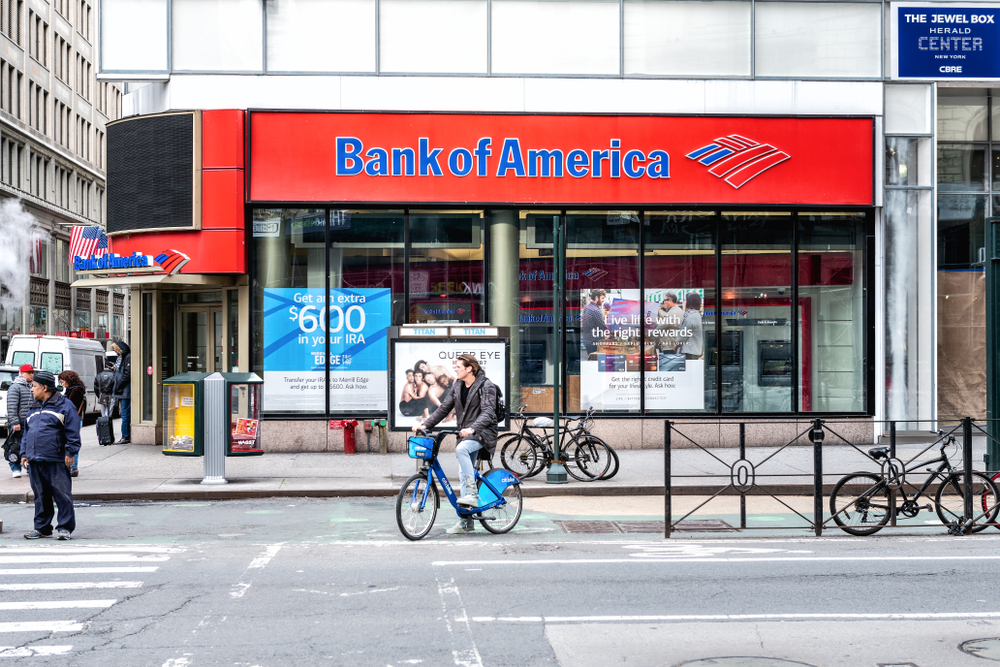
While many Americans expect banks to follow the same schedule, most major banks, including Bank of America, Wells Fargo, and Citibank, will close their branches for Columbus Day, October 13. But here's the twist that might save your banking plans: two major banks, Chase and TD Bank, are bucking the trend and staying open.
This split decision among major financial institutions reflects a broader conversation happening across America about this federal holiday, which many states and communities now recognize as Indigenous Peoples Day.
Which banks are open and which are closed
Since Columbus Day is a Federal Reserve holiday, the vast majority of banks will close their doors. That means if you bank with Bank of America, Wells Fargo, or Citibank, you'll need to plan ahead for any in-person banking needs.
However, Chase Bank branches will welcome customers as usual, though there's a catch for digital users. Chase says online transactions will be treated as a holiday, meaning they may not be processed until the next business day. TD Bank, which operates under a Canadian parent company, also plans to keep its doors open throughout the holiday.
For all banks that do close, online banking and ATM services will remain available, so you won't be completely cut off from your accounts.
What this means for your Social Security and other payments
If you're among the millions of Americans who receive Social Security benefits, Veterans Affairs payments, or other federal benefits, you don't need to worry about delays. These payments typically arrive via direct deposit regardless of banking holidays. However, other direct deposits may not settle or be initiated on banking holidays, which could affect payroll deposits or private pension payments.
The key is knowing your payment schedule. Social Security payments usually arrive on the second, third, or fourth Wednesday of each month, depending on your birth date, so Monday's holiday shouldn't interfere with your benefits.
The changing face of Columbus Day
This banking holiday reflects a broader cultural conversation that's been evolving for decades. Indigenous Peoples Day is now observed by 17 states, including Washington, South Dakota, and Maine, as well as Washington, DC, as communities choose to honor Native American history and culture rather than celebrate Christopher Columbus.
As attention has shifted to Columbus' life and alleged cruel behavior toward native people who lived in the land that would later become the United States, several states have created a new holiday on the same day that honors those native people.
The federal government still officially recognizes Columbus Day, but while the federal government acknowledges Indigenous Peoples Day, it isn't listed as a separate federal holiday.
Federal Reserve Holiday Impact
When the Federal Reserve closes for a holiday, it affects the entire banking system's ability to process certain transactions between banks.
This is why most banks follow the Federal Reserve's holiday schedule, even though some choose to keep their lobbies open for basic customer service.
Also read: Post offices across America to close for one day in October—here’s what it means for you
Planning around the holiday closure
Besides banking, most post offices and government buildings will be closed in observance of the federal holiday, with no regular mail delivery. However, the stock market will remain open for trading, though bond markets will be closed.
Most retail stores, including major chains like Target and Walmart, will operate on regular schedules, so your grocery shopping and pharmacy visits shouldn't be affected.
Smart banking tips for holiday weekends
Whether your bank is open or closed on Monday, holiday weekends present a good opportunity to review your banking habits and prepare for future closures:
- Set up mobile banking if you haven't already. Most banks offer user-friendly apps that handle the majority of your banking needs.
- Schedule recurring payments for a day or two before holidays to avoid late fees.
- Keep a small amount of cash on hand, just in case you need it when banks are closed.
- Sign up for account alerts to track your balance and transactions in real-time.
Columbus Day banking essentials
- TD Bank and Chase will be open, but Chase online transactions may be delayed
- Bank of America, Wells Fargo, and Citibank will be closed
- ATMs and mobile banking remain available at all banks
- Social Security benefits shouldn't be affected
- Plan cash needs and bill payments ahead of time
Looking ahead to more banking holidays
Monday's closure is just one of 11 federal holidays that affect banking operations each year. Veterans Day on November 11 is coming up next, and it will bring another round of bank closures. Thanksgiving and Christmas will follow, creating additional days when in-person banking isn't available.
The good news is that banking technology has made these closures far less disruptive than they once were. Whether you need to check your balance, pay a bill, or transfer money between accounts, most of these tasks can be handled from your phone or computer at any time.
The banking industry continues to evolve, with some institutions choosing customer convenience over traditional holiday observances. While most banks still follow the Federal Reserve's lead, the handful that stay open during federal holidays offer a valuable service for customers who need in-person assistance.
Read next:
- October brings energy relief: Four programs delivering up to $3,200 to cash-strapped Americans
- Your 2024 income could raise your Medicare costs in 2026—here’s how to avoid paying more than you should
Have you noticed changes in how your bank handles federal holidays? Do you prefer the convenience of banks that stay open, or do you think traditional holiday closures are important? Share your thoughts and banking experiences in the comments below.






